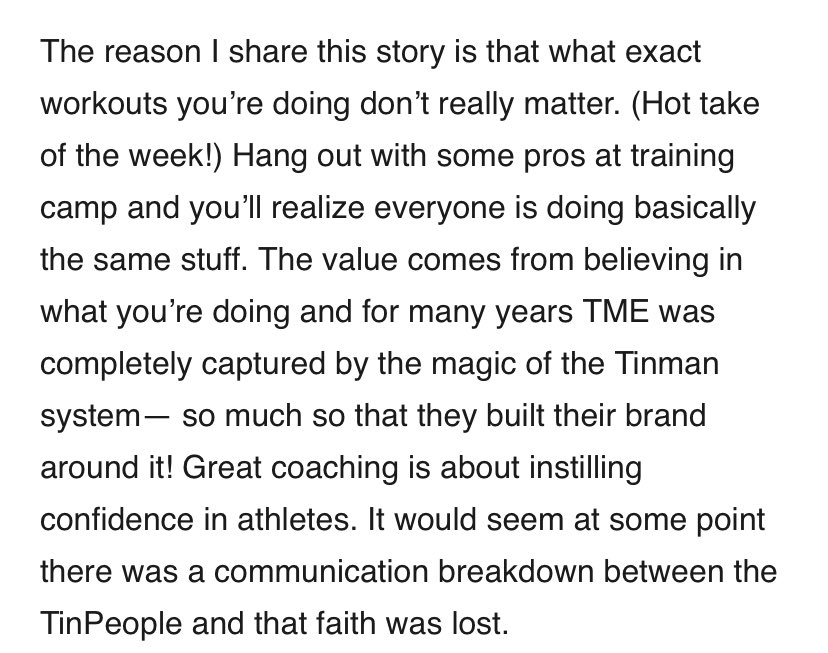
For those who've asked my thoughts on the nandrolone positive. It comes down to this chart.
I added a red line and box to follow. From what we know so far, the crux of the argument comes in on the GC/C/IRMS test, interpretation, and procedure.
I added a red line and box to follow. From what we know so far, the crux of the argument comes in on the GC/C/IRMS test, interpretation, and procedure.

So... let's go through this quickly. Houlihan tests positive for nandrolone with 5 ng/ml.
They make sure she's not pregnant.
Then because she falls between 2.5 and 15 ng, they run another test (GC/C/IRMS) to see if the nandrolone source is endogenous or exogenous.
They make sure she's not pregnant.
Then because she falls between 2.5 and 15 ng, they run another test (GC/C/IRMS) to see if the nandrolone source is endogenous or exogenous.
The lab says this test showed an exogenous source.
This is where the dispute comes in. Houlihan's team claims it should basically go down the other path of endogenous/inconclusive and ultimately the yellow ATF box.
Why do they claim that?
This is where the dispute comes in. Houlihan's team claims it should basically go down the other path of endogenous/inconclusive and ultimately the yellow ATF box.
Why do they claim that?
They claim that she consumed uncastrated boar meat. This is IMPORTANT.
The WADA document states if an athlete ate boar meat and the nandrolone level was below 10, then the GC/C/IRMS test isn't what should be used to determine things, but the "pharmacokinetics of N-19 excretion"
The WADA document states if an athlete ate boar meat and the nandrolone level was below 10, then the GC/C/IRMS test isn't what should be used to determine things, but the "pharmacokinetics of N-19 excretion"

In laymen's terms, boar meat throws off the GC/C/IRMS test to determine endo/exogenous.
So if you ate boar, you don't use that test. Instead, you are supposed to try to determine via looking at the pharmacokinetics of the nandrolone metabolites.
So if you ate boar, you don't use that test. Instead, you are supposed to try to determine via looking at the pharmacokinetics of the nandrolone metabolites.
If they go down the pharmacokinetics path, then based on the data/info provided by Houlihan's lawyer, you'd end up in the yellow Atypical finding spot.
Now you can see why boar meat is such an important part. If true, it shifts away from the exogenous test and to an ATF.
The crux of the argument lies in the lab saying it's exogenous/not accepting meat consumption & Houlihan saying meat consumption & should go down other path.
The crux of the argument lies in the lab saying it's exogenous/not accepting meat consumption & Houlihan saying meat consumption & should go down other path.
So what?
This is a technical argument based on the procedure.
Houlihan's argument rests on accepting it was boar meat so the GC/C/IRMS (exogenous) test isn't used.
AIU's rests on not being meat-related and thus it's okay to use the GC/C/IRMS test to show its exogenous.
This is a technical argument based on the procedure.
Houlihan's argument rests on accepting it was boar meat so the GC/C/IRMS (exogenous) test isn't used.
AIU's rests on not being meat-related and thus it's okay to use the GC/C/IRMS test to show its exogenous.
We need to see the full data/reasoned decision to understand more. But, hopefully that brings a touch of clarity on the technical nature of the case and what both sides are arguing.
For those interested here's the WADA document on nandrolone: wada-ama.org/sites/default/…
For those interested here's the WADA document on nandrolone: wada-ama.org/sites/default/…
• • •
Missing some Tweet in this thread? You can try to
force a refresh




